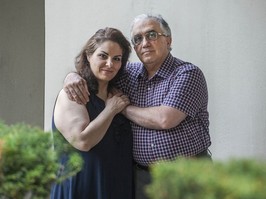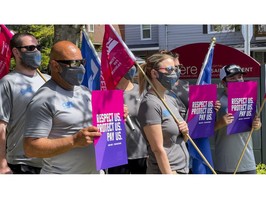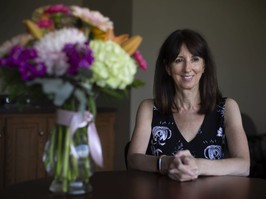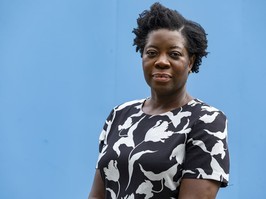poll flags 'racist attitudes' among 'vocal minority' of health staff
"these findings provide evidence of staff attitudes and behaviours that pose a significant challenge to reconciliation."
may 4 2021
 4 minute read
4 minute read

we apologize, but this video has failed to load.
try refreshing your browser, or
tap here to see other videos from our team.
tap here to see other videos from our team.
by: zak vescera
a never-released survey of saskatchewan health authority staff found a “vocal minority” were “harbouring racist attitudes” toward indigenous peoples that “pose a significant challenge to reconciliation in the health system without some type of intervention.”
the health authority distributed the online poll to staff and physicians in january 2019 as part of an internal effort “to identify potential challenges and opportunities” related to the truth and reconciliation commission’s 2015 report, which included calls to make canada’s health-care system equitable for indigenous peoples.
most of the 1,766 respondents said they supported those efforts, but hundreds were either ambivalent or responded to the poll with written comments that were themselves deemed racist. in some instances, those responses included “examples of disturbing acts of racism by staff toward patients/clients and colleagues/co-workers.”
“while the rating data indicate generally favourable views overall, the comments clearly show that there is a vocal minority of staff who do not support reconciliation and are harbouring racist attitudes,” reads a summary report the saskatoon starphoenix obtained through freedom of information legislation.
advertisement
advertisement
the sha did not respond to a request for comment before publication deadline.
the report has never been publicly released. it notes the survey’s findings are limited, owing to a response rate of just four per cent among the sha’s tens of thousands of employees, but said the internal engagement process had revealed “concerning trends around staff knowledge, attitudes, and behaviours (conscious or unconscious), pointing to some level of cultural unresponsiveness and exposure to culturally unsafe work and health care environments.”
the trc’s report included 94 calls to action to further reconciliation between indigenous and non-indigenous peoples, some of which were directly or indirectly linked to health care and the governments who provide it. they included calls, for example, to recognize the systemic effect that events like the residential school system have had on indigenous peoples’ health and urged health systems to incorporate indigenous medicines and world views into treatment.
the survey found half of sha staff respondents were “highly” committed to achieving reconciliation in the health-care system and that most supported making it more inclusive.
respondents were asked how much importance they place on a range of topics related to equity in health care. nearly seven in 10 respondents called systemic racism in health care a “critical” issue, and more than half said the same about respecting first nations treaty rights related to health and developing a “culturally responsive” workforce.
advertisement
advertisement
the thorn came with the open-ended questions; responses were described as ranging “from enthusiastically supportive to overtly racist.”
more than half the written answers to the section that asked staff to rank issues of importance were described as “unfavourable.” they included more than a hundred comments described as “modern racism” and one commenter who said they were opposed to “coloring the workforce.”
“you are causing the racism by catering to this one group of people. what about the rest of us who are proud to be canadians and work for what we need in life?” one respondent wrote.
“why do we have to keep paying generations later for something that happened in the past? germany isn’t paying or making concessions/restitution to the jewish people or their families for those who were injured or slaughtered in the holocaust. how is this any different?” another said.
in reality, germany has paid more than $90 billion usd to jewish and non-jewish communities affected by he holocaust, according to a document published by the country’s federal ministry of finance in 2020.
“as anticipated, given that expressing overtly racist views has become taboo, respondents were more likely to oppose reconciliation under the guise of a belief in equality/treating everyone the same,” the report said.
advertisement
advertisement
unsurprisingly, the 11 per cent of respondents who identified as first nations or métis were more likely to place more importance on all the issues related to the trc’s report.
those staff were also much more likely to report instances where a patient’s cultural safety had been threatened while visiting. more than half of indigenous respondents said they had experienced some level of threat to their cultural safety at work, compared to just over a quarter of caucasian respondents.
some of the submitted comments themselves described instances where staff had purportedly discriminated against patients or colleagues.
“these findings provide evidence of staff attitudes and behaviours that pose a significant challenge to reconciliation in the health system without some type of intervention,” the report said.
the news seems to be flying at us faster all the time. from covid-19 updates to politics and crime and everything in between, it can be hard to keep up. with that in mind, the saskatoon starphoenix has created an afternoon headlines newsletter that can be delivered daily to your inbox to help make sure you are up to date with the most vital news of the day. click here to subscribe.




